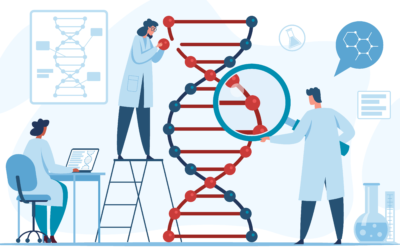Variations in certain genes can modify the risk of developing Alzheimer’s disease (AD) and other types of dementia. Some of the best-understood variants to date are in a gene called APOE. This gene plays a role in the transport of cholesterol and other fatty molecules in the brain and body. People with a variant of APOE called APOE4 have an increased risk of developing AD dementia. In contrast, people with a variant called APOE2 appear to have some protection against developing dementia.
The Protective Potential of APOE3 Christchurch
In 2019, researchers found a hint that a gene variant called APOE3 Christchurch (APOE3Ch) may also provide protection against the development of dementia. They had been following a woman from a family with an inherited variant in another gene called PSEN1. All other family members with this PSEN1 variant developed early-onset AD by middle age. But this woman, who had the PSEN1 variant and two copies of the APOE3Ch gene variant, remained cognitively healthy into her 70s.
It wasn’t clear if having only one copy of APOE3Ch could also protect against cognitive decline in people with an AD-causing PSEN1 mutation. In a new study, the researchers returned to the woman’s extended family of 1,077 people in Colombia. All were tracked with cognitive testing between 1995 and 2022.
Key Findings from the Recent Study
Led by Dr. Yakeel Quiroz from Massachusetts General Hospital, Dr. Francisco Lopera of the Grupo de Neurociencias de Antioquia in Medellín, Colombia, and Dr. Joseph Arboleda-Velasquez of Mass Eye and Ear, the research team compared the ages of cognitive impairment and dementia onset between family members with one copy of APOE3Ch and those without a copy of the potentially protective variant. Results from the new NIH-funded study were published on June 20, 2024, in the New England Journal of Medicine.
Out of the 1,077 family members, 27 had one copy of APOE3Ch. After accounting for other factors that influence dementia risk, including sex, education level, and other variations in APOE, the people with one copy of APOE3Ch had some protection against dementia. They developed mild cognitive impairment—the precursor to dementia—an average of five years later (age 52) than relatives without the variant (age 47). They also met the criteria for dementia about four years later than expected (age 54 vs 50).
Insights from Brain Imaging and Tissue Samples
The researchers conducted brain imaging on two of the participants. The scans revealed less buildup of tau protein tangles and preserved metabolic activity in brain regions associated with AD. Tau tangles are thought to contribute to the death of brain cells in AD. However, intriguingly, as seen in the first woman studied, the brains had high levels of amyloid-β plaque, another hallmark of AD.
The team also looked at brain tissue samples taken at autopsy from four of the people with one copy of APOE3Ch. The blood vessels in these samples showed less damage than in people without APOE3Ch. Such damage has been linked to cognitive decline and dementia.
“I am highly encouraged by our findings, as they suggest the potential for delaying cognitive decline and dementia in older individuals. Now we must leverage this new knowledge to develop effective treatments for dementia prevention,” Quiroz says.
Future Directions and Potential Therapies
The team is now performing additional studies to understand the mechanisms through which APOE3Ch protects the brain. They are already taking advantage of the knowledge gained through study of this variant to design a therapy that shows promise in mouse models. Studies are also needed to measure whether APOE3Ch delays dementia in people who don’t carry a PSEN1 mutation.
Understanding the pathways and mechanisms that provide this protection could lead to new therapeutic strategies not just for those with genetic predispositions but for the broader population at risk of AD. The ongoing research could pave the way for breakthroughs in delaying or even preventing Alzheimer’s disease, offering hope to millions of people worldwide.





0 Comments